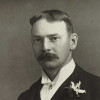“ we do not fix our desires on every apparent greater good, unless it be judged to be necessary to our happiness: if we think we can be happy without it, it moves us not. ”
John Locke, An Essay Concerning Human Understanding (1689). copy citation
| Author | John Locke |
|---|---|
| Source | An Essay Concerning Human Understanding |
| Topic | happiness desire |
| Date | 1689 |
| Language | English |
| Reference | |
| Note | |
| Weblink | http://www.gutenberg.org/files/10615/10615-h/10615-h.htm |
Context
“and so being happy, till some new desire, by making them uneasy, disturbs that happiness, and shows them that they are not so, they look no further; nor is the will determined to any action in pursuit of any other known or apparent good. For since we find that we cannot enjoy all sorts of good, but one excludes another; we do not fix our desires on every apparent greater good, unless it be judged to be necessary to our happiness: if we think we can be happy without it, it moves us not. This is another occasion to men of judging wrong; when they take not that to be necessary to their happiness which really is so. This mistake misleads us, both in the choice of the good we aim at, and very often in the means to it, when it is a remote good.”
source


